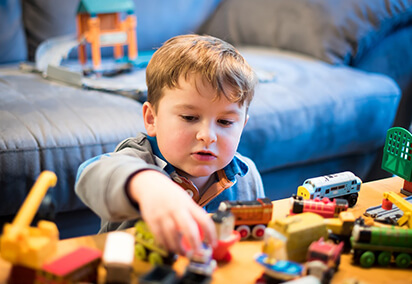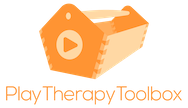Our Blog
What is Play Therapy?

A quick Google search of ‘play therapy’ results in all kinds of articles and videos on ways that play therapy can be used to help children. There are ways that play can help with anxiety, grief, bullying, and the list goes on and on. But before we can implement play therapy to interact with children at their level, we need to understand what kids are doing when they play.
Why do kids play?
According to the pioneer of child psychology Jean Piaget, “play provides the child with the live, dynamic, individual language indispensable for the expression of [the child’s] subjective feelings for which collective language alone is inadequate.”
This is where Play Therapy becomes invaluable. It allows us to decipher and understand what children are going through and how they feel about the situations and environments that they are in. It also creates a space to teach kids how to deal with different scenarios in a healthy and effective way.
So the two questions that we need to ask are, ‘What is play therapy?’ And more importantly, ‘Why is play therapy so useful?’
If you spend any real amount of time around children who play, you notice quickly that kids are expert storytellers, sometimes much better than even their parents. Fearsome dragons, extravagant tea parties, gigantic armies, talking animals, and all kinds of magical objects are the daily norm in the life of children at play. Their stories involve a hero, a challenge, an antagonist, and a resolution.
But beyond that there are even deeper things at work. Children use toys in a variety of expressive ways. They can express anger, joy, gratitude, grief, isolation, fear, anxiety and all kinds of other emotions in a language that they understand and use daily: play. There is not a right or wrong way to play, but how children play can speak volumes to what struggles they may be facing.
So the answer to our first question is this: Play Therapy is a communication tool used to help children express themselves and develop healthy and effective ways to deal with the emotional, cognitive, and behavioral challenges that they face.
But why is Play Therapy so useful?
There are a lot reasons that play therapy is an effective way to interact with children and help them as they develop. Play is the first language for every child. It’s also the first way that they interact socially with other children. Play therapy lets us interact with them at their level and it helps them visualize and explain the issues they face without having to use words.
The question you might be wondering is, “can parents do play therapy?” There are absolutely ways that parents can use play to help their children at home. Sometimes it can be as basic as role-playing a situation so that you can use it as a learning opportunity. Simply playing with your child regularly can open communication channels that otherwise would be closed.
While research shows that Play Therapy can be helpful regardless of the problem, age, and gender of the child, maybe you are seeking help with a specific issue your child has been exhibiting, like anxiety, anger, or depression. If so, you should look into contacting a registered professional Play Therapist.
Trained Play Therapists have the ability to use both directed and free play to not only identify and understand the issues, but to help kids work through those issues. They also work with parents to develop and implement strategies to use at home.
Play can be a wonderful and unique way to connect and communicate with your child as they grow. Using Play Therapy gives your child the best opportunity to express themselves as they grow and it gives you the best tools to help them develop healthy life-long habits.
If you’re interested in finding a registered play therapist, you can find one here.
